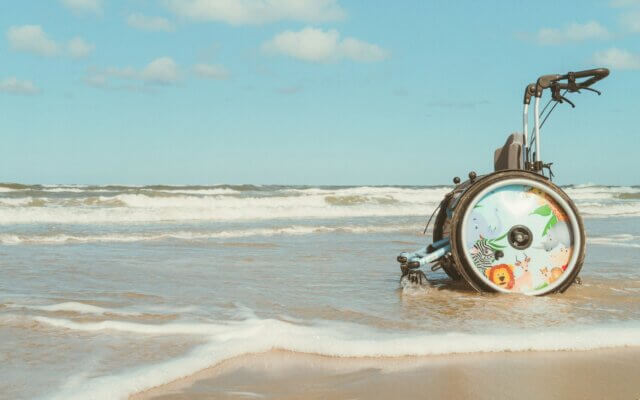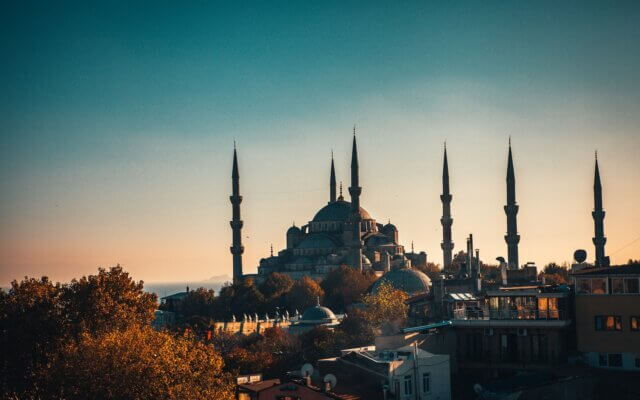Programme & action: ERASMUS+, Key Action 1: 2-part Mobility for Youth Workers
Venues and dates: Activity 1: 3-11 September2017, Vilnius, Lithuania, Activity 2: 15-22 October 2017, Yerevan, Armenia
Participants: Eliška Bečková, Kateřina Tomanová
Please read the programne of the 1st activity week a programme of the 2nd activity week. Please watch the project video from the September TC (in Vilnius, Lithuania).
Participating countries: Czech Republic, Lithuania, Armenia, Belarus, Estonia, Macedonia, Georgia, Germany, Italy, Moldova, Poland, Portugal, Romania, Serbia, Sweden
Hosting organisation: Youth to Youth Initiative (Lithuania) & Armenian Progressive Youth NGO (Armenia)
Project report from the 1. activity = Vilnius, Lithuania, 3-11 September 2017:
The first part of the project “Intercultural Education and Youth Work for More Inclusive Europe” took place in a lovely small city Vilnius from 3rd to 11th September. There were excited and motivated people from many different countries: Czech Republic, Lithuania, Armenia, Belarus, Estonia, Macedonia, Georgia, Germany, Italy, Moldova, Poland, Portugal, Romania, Serbia, and Sweden.
Our leaders Karolina and Saida did a wonderful job of making us a team since the very beginning. We played getting-to-know games the first day and in the afternoon, we went to the city to play a team-building game that also helped us to know the migration issues in Lithuania.
Many very knowledgeable speakers were invited to share their knowledge on migration issues, laws, and also stories. I admire that the leaders got to these very important and high-ranking people. Our leaders also prepared many interactive seminars. I would highlight the one about intercultural communication, where we were taught by simulation game, which is a great hands-on experience.
Every country also presented their migration issues and their homework, which was a video of interviewing local people and asking them questions about migration. Some of the participants were asked to prepare their own workshops based on what they normally do in their NGOs. These were also very interesting and helpful.
When we got a good idea about the migrant situation, the biggest part of the project started. We were divided into groups and each group was supposed to make their own project, that they will implement back in their countries. We were provided a lot of guidance and came up with wonderful things. Our group wanted to have a “Dark Room” where all people will be able to share their stories without judgement. Other projects were also very inspiring, for example common meeting between teachers, parents and kids to prevent discrimination at schools, multicultural open kitchen, etc. When we did this, we were educated on marketing and made our business plan and then tried to pitch our project. This also gave us a lot of insight.
We had a lot of great time, especially at intercultural night and our trip to Trakai. We even stayed in the common room during coffee breaks and talked about the issues more. I cannot wait for the second part of this project.
Eliška Bečková
____________________
Project report from the 2. activity = Yerevan, Armenia, 15-22 October 2017:
Second part of the training course called Inclusive Europe took part in Yerevan, Armenia from 15th October to 21st October 2017. We were accommodated at Capital Hotel. Some parts of programme took part at conference room, other parts at host organizations. All participants known each other from first part of the course, which took place at Vilnius, Latvia. Our leaders Grigor and Inna from the Yerevan organization did great job during whole course.
First day we were informed about programme of the course and then we explored the city.
Second day we visited organization Youth NGO. We had a lunch at the restaurant, where immigrants cooked their typical food for customers. After the lunch we worked on the follow up projects.
Third day of the course we visited humanitarian organization Kasa. Then we had lunch at another restaurant, where immigrants cooked. After the lunch we visited organization Aleppo.
Fourth day we worked on the follow up project. After the lunch we had a trip in the countryside. We saw Garni temple, Geghard monastery. We finished our day with traditional Armenian dinner.
Another day was visiting of humanitarian office, but we did not participate of the programme. We visited Czech embassy to vote, because in the Czech Republic were elections to the parliament at that time. After the lunch we visited United Nations High Commissioner for Refugees.
Last day we took part of the international conference about migration, refugees crisis and youth. That conference was at hotel Double Tree by Hilton.
Me and Eliška stayed at Armenia one more day. We had possibility to explore more places at this interesting city and learn more about traditions and history. Now we have more information and skills about refugees and we realized, that it is important not to be in the box, but out of the box.
Kateřina Tomanová
_____________
Oficial report:
Empowering civil society organizations to work with refugees
Over the past few years around 66 million people were forced to leave their home due to conflicts, wars, natural disasters and persecution – approximately one of every 113 people on the planet. Only in the first half of 2017, over 105.000 refugees and migrants arrived to Europe. After crossing international borders their future was unknown. Thus, there was a clear need of support and assistance to refugees and asylum- seekers so they adopt in the hosting countries and build their future.
The urge of development and empowerment of civil society organizations that work with refugees, resulted in the creation of “Inclusive Europe” – a 2-stage project targeting 36 youth workers in CSO activists in 16 countries. The first stage of the project – a Training Course – took place in Vilnius, Lithuania, while the second part – a Stud Visit – took place in Yerevan, Armenia. The project involved 36 youth workers from Armenia, Belarus, Czech Republic, Estonia, FYR Macedonia, Georgia, Germany, Italy, Moldova, Poland, Portugal, Lithuania, Romania, Serbia, Ukraine and Sweden. The same 36 trainees took part in both stages of the project to ensure a better effect.
During the Training Course in Lithuania, the participants analyzed the emigration and immigration situations in the participating countries, discussed the causes of migration, push and pull factors as well as shared experiences and best practices of integrating young migrants in youth organization. As a result of the Training Course, the participants were equipped with a capacity and confidence to combat hate speech towards migrants, misinformation about refugees and xenophobic discourse back home. Following the training in Lithuania, the group travelled to Armenia, searching for practical tools to work with refugees and an inspiration from field experts.
The Study Visit to Armenia started at the Aleppo Compatriotic Charitable Organization where participants learned about the emergency relief assistance to the most vulnerable Syrian families and individuals as well as met refugees from Syria. Participants also exchanged the information on the issue during the question and answers session.
Armenia has been an interesting case study in terms of the topic of the project. It is the third European country with the biggest number of displaced people from Syria. Only Germany and Sweden have accepted more asylum seekers. Both countries rank amongst strongest economies in Europe whereas Armenia has a GDP per capita ten times lower than the European Union average. Though the majority of the refugees from Syria are ethnic Armenians other minorities have also found refuge Armenia. One example is the Yazidis who face brutal persecution and ethnic cleansing at the hands of various terrorist groups, both in Syria and Iraq. Upon arriving in Armenia they have been granted an asylum status. That’s why Armenia was an interesting place to visit during this project and gave us possibility to have interesting study visits, meetings with refugee organizations, refugees and institutions dealing with migration.
To have a closer look at the work of professionals, to understand how to help the displaced people across the world and to find out the situation of refugees in Armenia the participants were given the opportunity to pay a study visit to the UN House in Armenia. At the UN, we met the representatives of UNHCR – The UN Refugee Agency who delivered an explanatory presentation to demonstrate the current situation of refugees in Armenia and the UNHCR’s tireless efforts to help them to adopt in the hosting countries.
The combination of the Training Course and the Study visit represents an interesting mix of theoretical and practical approaches which contributed to a more comprehensive and holistic program. Through the program the participants gained a comprehensive understanding of general European values, such as equality among all people irrespective of their gender, nationality, religion, age; dignity; freedom; respect of human rights, including the rights of migrants and refugees. Additionally, the project created strong connections and a network between the representatives of 16 different organizations, so they can actively foster the ideas of solidarity and inclusion in the process of helping refugees, migrants and asylum- seekers back in their countries.
“Inclusive Europe” was organized by ‘Armenian Progressive Youth (Armenia) NGO and International Youth to Youth Initiative (Lithuania) in cooperation with 14 partner organizations. The project was funded by Agency of International Youth Co-operation of Lithuania under the Erasmus+ program of the European Union.


